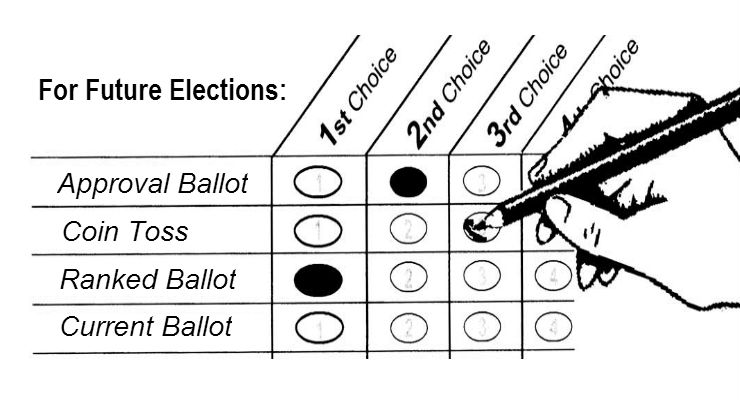
In an article on Common Cause, Isabel Giovannetti argues that
Every American deserves to have their voice heard in our elections, from city council to the presidency. Those who are serving in elected office should reflect the beliefs of the people. In a democracy, the people have the power— and voters should have the final say.
Yet, the way our voting systems are designed can limit voter’s choices. Often, voters feel like there is a predetermined winner— typically the most well-connected or well-funded. Or, voters feel like they’re choosing the lesser of two evils in order to prevent a worst-case scenario.
In most American elections where there are more than two candidates, candidates don’t even need the majority of the vote; they just need to achieve a higher percentage than anyone else. As a result, most candidates only prioritize their core group of supporters, and don’t take the time to engage with the whole electorate.
Campaigns can also feel like a race to the bottom, where a zero-sum approach leads to negative campaigning designed to turn people away from the other candidates, rather than draw them in with compelling ideas.
The solution to this problem according to Democracy Chronicles’ friends at the nonpartisan nonprofit FairVote, an organization with its headquarters in Takoma Park, Maryland, is ranked-choice voting.
Ranked choice voting (RCV) makes democracy more fair and functional. It works in a variety of contexts. It is a simple change that can have a big impact. With ranked choice voting, voters can rank as many candidates as they want in order of choice. Candidates do best when they attract a strong core of first-choice support while also reaching out for second and even third choices.
When used as an “instant runoff” to elect a single candidate like a mayor or a governor, RCV helps elect a candidate that better reflects the support of a majority of voters. When used as a form of fair representation voting to elect more than one candidate like a city council, state legislature or even Congress, RCV helps to more fairly represent the full spectrum of voters.
Leave a Reply